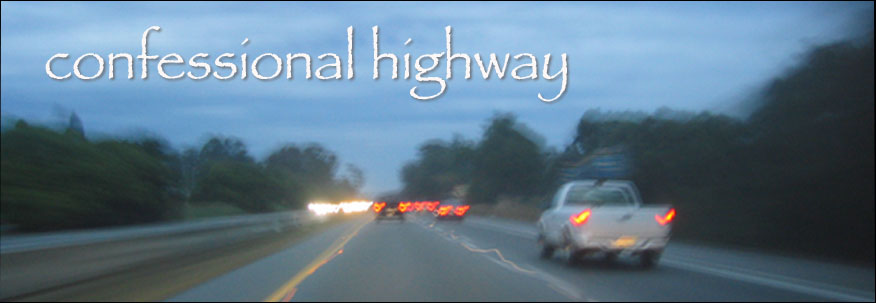I’m on a date, kind of a first date, kind of a second date. When you meet someone in public, talk, grab a drink, is that date one? The first time you make plans officially, is that date two? The fine lines of dating semantics.
So I’m on date one/two. Conversation rolls around to my darling, aqua blue, VW convertible Beetle, which made yet another unexpected journey – a very precarious one at that – to the repair shop. I was eager to tell the tale of the precision driving I displayed getting my battery dead and electrically challenged car through the crowded morning LA traffic, forced to gun the engine on my five speed to keep the RPMs above 3000 so that the car wouldn’t die in the middle of the road blocking cars behind me, leaving me at the mercy of aggressive horn honks and hateful stares.
But before I can boast of my impressive driving skills, skills that lead my son, who was very late for school after our waiting for the tow truck to jump my car – only to have the car die 50 yards away from my home necessitating my son’s bolt from the vehicle to flag down the tow driver for another jump before he zipped off in that aggressive way that only tow trucks, city buses, and taxi drivers dare – to mention that my driving was like a video game, for when pedestrians dared try cross the street before me, I panicked and yelled, “
No, not a pedestrian,” as I knew each time I slowed or stopped I ran greater risk of my car dying again.
So back to my date and my enthusiasm for sharing the story of my Bug, the car that behaves like an adoptee wanting regular visitation with its birth parents – the only explanation other than the belittling term ‘
Lemon’ that I can bestow upon my car for its frequent and odd ailments that mandate I return to the Bug store and rehab. I’ve been to the dealership so many times in the three years of owning my car that I’ve worked my way through nearly all the service managers until I found my dear buddy, Jeff, who I now request without question. The other service managers are nice, but they won’t joke about how unreliable Beetles are or voice amazement that I’ve hung onto the car this long. Better yet, my dear joking Jeff ensures that everything is fixed
the first time around as opposed to his colleagues who look at a petite woman as automotively inept and thus repeatedly dismiss my assertions about my car’s wacky behavior.
Jeff listens when I say that twice the passenger door mysteriously would not close until I was forced to slam the thing aggressively. He doesn’t pose the condescending question, “
Are you sure the seat belt wasn’t in the way?” – the words I uttered to my son when he couldn’t get the door to close, so I know condescending when I hear it.
Instead, Jeff insists his mechanics research my door until they discover that the window is out of alignment and preventing the door from closing. (
How does that suddenly happen??) Jeff adds, “
You’re damn lucky you didn’t break the window when you slammed the door,” and smiles. I smile back and picture shattered glass flying through my garage and concur that I’m damn lucky. Starting the morning with a deader than dead battery and electrical problems signified by every available dashboard light flashing in random chaos mimicking a concert light show was plenty. Who needs the addition of a passenger window flung all over a garage floor?
Whenever my car and I are spoken of or seen together, I am greeted with, “
That car is so you.” I get this comment from people gassing up beside me in the self-serve aisle who have never before seen me. I get this comment from friendly drivers as they pull alongside me in the LA traffic forced to slow. They motion for me to roll down my window, which interestingly will soon require a new hand gesture beyond mimicking cranking, for our young drivers have never been in a car with hand crank windows unless they were forced into the ultra cheap rental model offered to me the past few days while Beetle was home nesting. I don’t know the hand gesture for “
push the little button to make the window go down.” But because I wasn’t born yesterday, I understand the hand crank gesture and roll down my window to hear, “
That car is so you.” I say, “
Thank you,” but I’m not sure why because it’s hard to be sure that’s a compliment except the drivers are smiling, and unless they’re engaging in an act of unprovoked cruel mockery, I think they’re saying something nice.
So back to my date. When the subject of my car comes up and my date says, “
That car is so you,” I finally ask, “
Why?” I explain that I have no idea how I appear to the outside world, how I appear to strangers, so this “
so you” comment baffles me. My date goes on to explain, “
Well, it’s cute and, you know, a girly car, and you seem like a girly girl.”
And I’m stunned.
Girly girl? I’ve received the girly girl label? A dedicated childhood tomboy who spent nearly all her time with boys playing sports and other weirdly inventive games, a girl who grew into a teen whose focus was athletics and art and never read any magazines bestowing advice to teen girls on how to look hot and get the guy? (You get the guy by hanging with him on the sports field. Just don’t
act like a guy and get all macho, and your shared interests pave the way to nice romance, thank you. And yes, I know there are other ways to get the guy. I’m not living under a rock.)
My teen self morphed into the college student who with injured shoulder left the athletic playing field as participant and began photographing sports instead, attracting the hottest intelligent jocks – no, not a contradiction – at her Ivy League-ish university to cozy up to her to see if they could coerce her to put their photo in the school paper because they learned that she’s
Sports Photography Editor and she’s friendly on top of that, and if I’m to believe my date, maybe a little cute.
And that college student has become the woman who has never had a manicure, has only had two pedicures – one to honor her friend’s pre-wedding moment in some odd female bonding ritual and another to mark the passage of another year on a friend’s birthday. Both made me completely uncomfortable as if I had wandered into a secret society with odd rules of behavior I didn't understand where I had to fake my way through the experience with an artificial grin on my face feigning interest in the color my toenails were becoming. I should have enjoyed the calf massages, but I prefer the hands crawling over my legs to be of the male variety.
So when my date sees me as a girly girl, I’m curious. I’ve always felt decidedly
unfeminine, though not in the butch way. My hair is now long after decades of shoulder length and shorter. My makeup wearing is minimal and mostly purchased at the drugstore. I can't discuss cosmetic preferences unless saying “
the pink brand waterproof mascara for $4.50 at Sav•on doesn’t smear” counts, a tip I overheard from a makeup artist doing my friend’s eyes on the day of her wedding. “
The cheap stuff is best,” he emphasized.
In general, I just don’t feel comfortable around all the, well, girly girl stuff. Women’s magazines and the things they emphasize offend me. I don’t gather with women to bitch about men because for the most part I like men, certain objections like the obsession over watching sports and the resulting mopey behavior following disappointing outcomes excluded. Both genders offer examples of stereotypes and I don’t mean to repeat them, but sometimes we default to generalities, and when generalities arise, I don’t easily slide into girl camp. I straddle the zone between the genders, so ‘
girly girl’? – I just don’t get it.
But I’m intrigued by the suggestion because one of the interesting things about running amongst the living is that we never get to see ourselves as others do. If this date sees me as a girly girl and that’s whom he asked out, we may have a little problem and a very limited future. Sure, I was dressed in a short skirt and high boots on the night we met, but if that’s what he’s counting on as my regular attire, he’ll be disappointed most of the time. I’m more of a jeans and flip flops sort of woman. My nails are often broken from the labor and hobbies of my hands along with some lingering habitual nail biting that arises in times of intense focus and stress.
I’m not dainty and I’m not delicate, but I’m not a bruiser either. My strutting comes packaged in the female variety. At times I’m shy and demure, but girly girl? I just don’t think so, and if my date had seen my video game driving skills that my son so admired in my daring maneuvering of my ailing five speed, he may rethink his choice of words. But I could be wrong. Maybe my date is a feminist of the modern kind where all of the above constitutes a girly girl. If so, we may have an interesting future after all.






